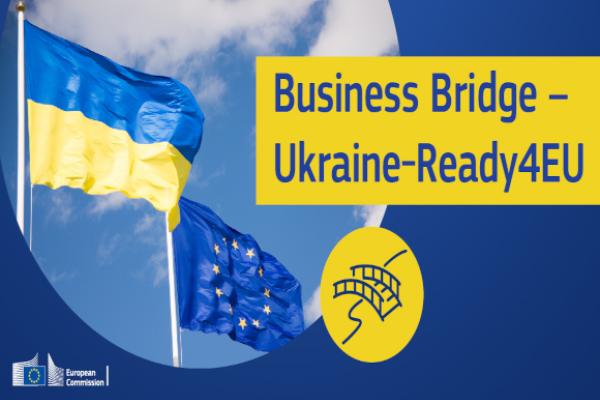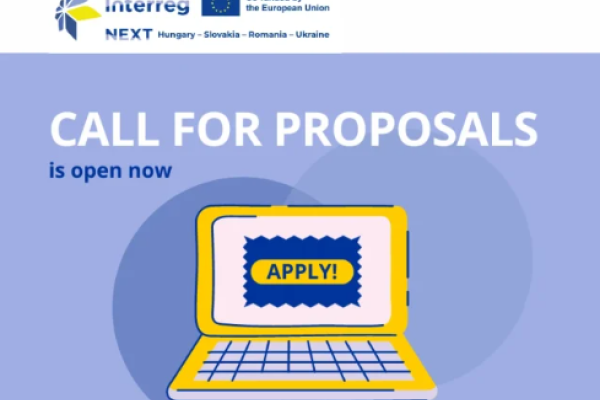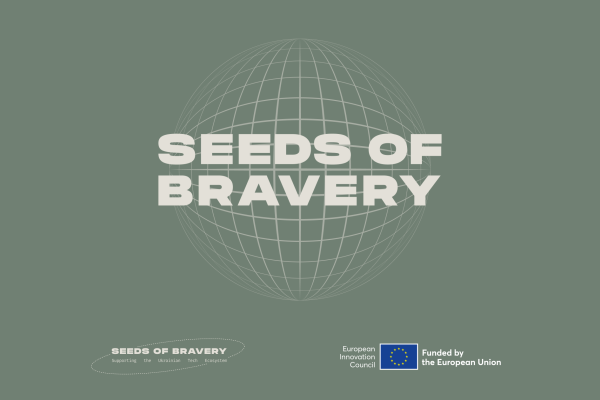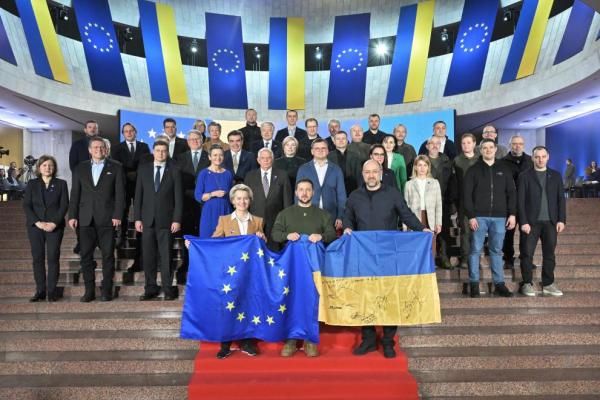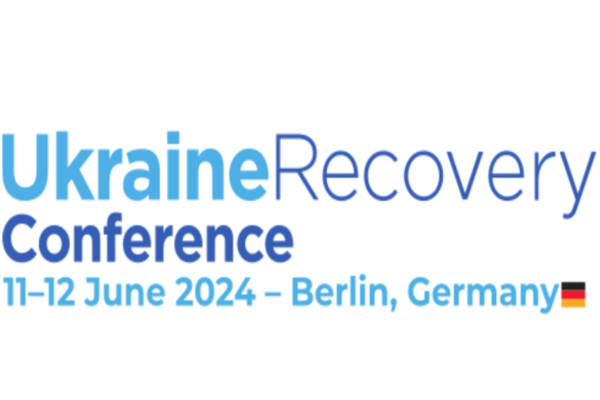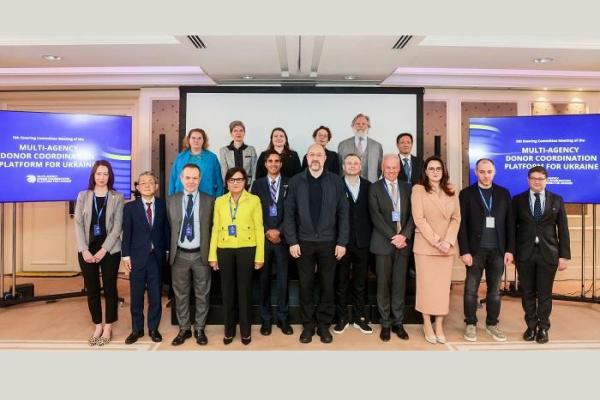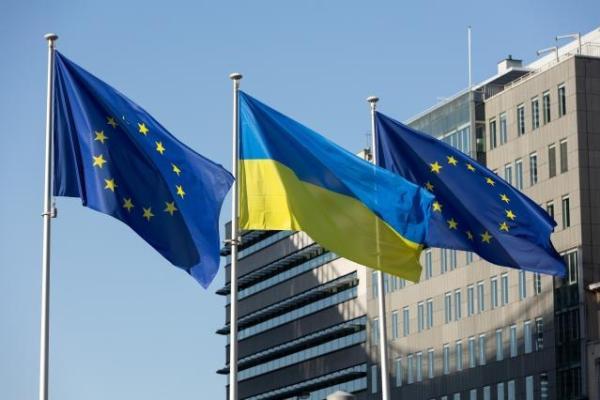
What the EU is doing to integrate Ukraine into the single market and promote business cooperation

The Commission will work with Ukraine to go a step further and ensure a seamless access to the Single Market of the European Union. Our Single Market is one of Europe’s greatest success stories; you know the power that lies in the Single Market, so now it is time to make it a success story for Ukrainian friends too.
The single market
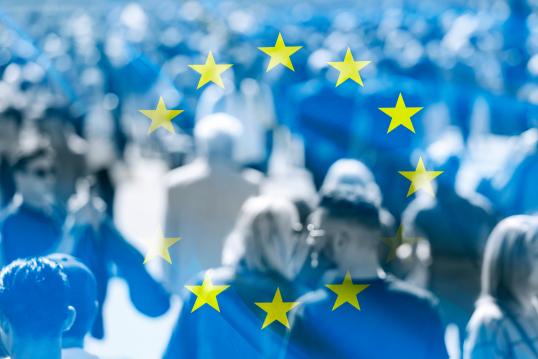
On 2 February 2023, President von der Leyen and Ukrainian Prime Minister Denys Shmyhal signed the association agreement for Ukraine to join the Single Market Programme.
Participation in this programme will provide support to Ukrainian small and medium-sized companies (SMEs), facilitate their access to EU markets, and promote a favourable business environment, sustainable growth and internationalisation.
As part of the Single Market Programme (SMP), Ukraine has been able to join the Enterprise Europe Network (EEN), and benefit from Erasmus for Young Entrepreneurs and the European Cluster Collaboration Platform (ECCP). For more details, see 'Support for businesses' section below.
Ukraine will also be eligible for funding to statistics producers for the design, production and dissemination of high-quality statistics to monitor the economic, social, environmental and territorial situation.
Ukraine’s participation in the Single Market Programme is an important step in Ukraine’s European path and will help the country’s economic recovery.
The European Commission has been exploring how to use the full potential of the Association Agreement and the Deep and Comprehensive Free Trade Agreement with Ukraine to ease its access to the single market. This has led to the revision of the priority action plan for 2023-24, laying down a set of actions to be undertaken by the EU and Ukraine in order to accelerate the full implementation of the Deep and Comprehensive Free Trade Agreement.
In 2021, the EU and Ukraine signed a Memorandum of Understanding on a strategic partnership on raw materials. In light of the Russian invasion of Ukraine, an updated roadmap for 2023-24 has been endorsed, with specific projects that reflect the new priorities and reconstruction of Ukraine’s extractive industry.
The EU-Ukraine High Level Industrial Dialogue is organised every year between the Directorate-General (DG) for Internal Market, Industry, Entrepreneurship and SMEs and the Ukrainian Ministry of Trade and Industry to take stock of ongoing industrial cooperation and agree on the next steps. These meetings provide a platform to discuss ongoing work strands to better integrate Ukraine into the single market and to hear directly from businesses about the impact of Russia's aggression on their operations.
The Commission is closely analysing national measures, such as export restrictions on products (agri-food, fuels etc.), taken as a consequence of the war and the ensuing effects or fears of shortages. The Commission is also monitoring national measures undertaken by EU countries to address Russia’s invasion of Ukraine.
Support for businesses

Our business support networks provide assistance to EU and Ukrainian companies interested in cooperating and developing.
Where can EU and Ukrainian businesses find advice, cooperation opportunities or updates?
Enterprise Europe Network (EEN)
The EEN helps businesses innovate and grow in the single market and beyond. It is the world’s largest support network for SMEs with international ambitions.
The EEN-Ukraine helps Ukrainian SMEs to innovate and partner with EU SMEs. As part of this, EEN Ukraine has recently mapped Ukrainian clients and their innovation needs to achieve the twin transition and improve their competitiveness, as well as raised awareness about doing business and investing in Ukraine.
European Clusters Alliance (ECA)
ECA is a collaborative forum that gives a voice to the clusters’ interests, needs and opportunities at European and global level. A cluster network aggregates 800 cluster organisations, consisting of 150 000 innovative businesses and around 11 000 universities, research centres and public institutions.
The Ukrainian Clusters Alliance was established on March 24, 2022. It aims to support cooperation between Ukrainian and European clusters, in order to restore disrupted value chains and for them to become more resilient at regional, national and international levels.
European Cluster Collaboration Platform (ECCP)
ECCP is the European online hub for cluster stakeholders (cluster organisations, policymakers and other related stakeholders from the cluster ecosystem) and the reference one-stop-shop for stakeholders in non-EU countries aiming to set up partnerships with European counterparts.
Focus Group Ukraine brings together relevant stakeholders and business support networks to discuss the latest EU, national, Ukrainian and international initiatives and programmes to support EU-Ukraine business cooperation and collect their feedback.
The forum promotes closer trade cooperation between Ukraine and the EU by raising awareness of the opportunities of doing business with Ukraine and vice versa.
What are the IT tools that allow EU and Ukrainian businesses to find each other?
The EEN Supply Chain Resilience Platform
As part of the EEN’s support to SMEs to become more resilient, the platform enables SMEs to connect with new partners and help restore disrupted value chains.
EU-Ukraine Solidarity Lanes – Business Matchmaking Platform
Solidarity lanes are essential corridors for Ukraine's agricultural exports, as well as the export and import of other goods. The EU-Ukraine Solidarity Lanes Business Matchmaking Platform aims to bring EU and Ukrainian businesses together to quickly find pragmatic solutions to the export of agricultural produce, food products, and raw materials from Ukraine, aiming to facilitate logistics operations and to find new partners.
Electric energy matchmaking Forum for Ukraine support
The forum brings together Ukrainian public and private sector companies that need to recover electric systems or buy new power generating equipment or its components, and EU producers/distributors of different types of energy equipment who can sell or donate it.
Support for entrepreneurs

How can Ukrainian entrepreneurs gain experience to set up their own company?
Erasmus for Young Entrepreneurs programme (EYE) is an exchange scheme that helps European entrepreneurs start and grow their business. The programme is ready to support the participation of more Ukrainian entrepreneurs.
At the start of the Russian aggression, contingency measures were taken to help the functioning of 5 EYE local organisations based in Ukraine to allow for a higher number of Ukrainian entrepreneurs to participate in EYE by addressing their needs, including those who were displaced due to ongoing Russian aggression.
Within the ReadyForEU call launched in February 2023, 'Erasmus for Young Entrepreneurs - Ukraine', will allow new Ukrainian entrepreneurs to gain business experience in other European countries. The call will select organisations in Ukraine and the EU to recruit up to 430 new Ukrainian entrepreneurs and match them with host entrepreneurs in the EU.
How can Ukrainian businesses get closer to the single market?
Within the ReadyForEU call, 'Business Bridge', with a budget of €4.5 million, will provide financial support to Ukrainian SMEs affected by the war, in the form of vouchers to access services and participate in trade fairs in the EU.
Humanitarian aid and support for Ukrainians fleeing the war

The Directorate-General (DG) for Internal Market, Industry, Entrepreneurship and SMEs has published a report which assesses the uptake and responses by EU countries to the Commission recommendation on the recognition of professional qualifications of individuals who have fled the Russian invasion of Ukraine. The report identifies a range of promising practices and highlights that EU countries have made significant strides in facilitating the integration of Ukrainian professionals, especially in the fields of healthcare and education.
The Directorate-General (DG) for Internal Market, Industry, Entrepreneurship and SMEs has set up a forum under the European Cluster Collaboration Platform to support the delivery of humanitarian aid and to support Ukrainian refugees in EU countries.
During the winter of 2022-23, in close cooperation with DG for European Civil Protection and Humanitarian Aid Operations, a large network of businesses and industries were mobilised to encourage donations, the ramping up of production and sale of energy related equipment, such as high capacity generators or batteries. These actions resulted in the increase of offers coming from the private sector.
The Intelligent Cities Challenge is targeting the integration of displaced people from Ukraine, in particular entrepreneurs and those wishing to enter the labour market.



